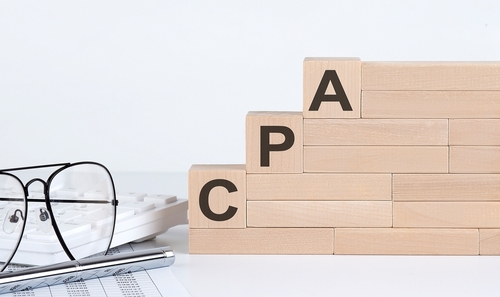The Association of International Certified Public Accountants (AIPCA) recently released its 2023 Trends Report, which featured some interesting findings related to the talent gap in the field.

It also gave an update on initiatives the association is supporting to attract and retain talent.
Specifically, the report found that bachelor’s degree completions in accounting dropped 7.8 percent from 2021 to 2022. That’s significantly higher than the average decline of 1 percent to 3 percent per year since 2015–16. Master’s degree completions also fell, about 6.4 percent, but that is significantly less than the decline from 2019 to 2020.
There are several factors contributing to these trends including an overall decline in college enrollment, rising education costs, accelerated retirement among baby boomers, and shifting expectations regarding work culture and starting salaries.
And while degree rates are dropping, the profession remains robust, as 60 percent of firms surveyed reported that they expected to have the same or higher number of CPAs on staff in 2023 compared to 2022.
AICPA is at the forefront in the effort to address the talent gap in the industry, supporting several major initiatives to attract and retain talent.
Last year, the association released its updated Pipeline Acceleration Plan, which is designed to increase both student interest in accounting as a profession and the number of accounting graduates who go on to obtain licensure.
Then in September of 2023, it launched the Experience, Learn & Earn program (ELE), which provides students an opportunity to work in accounting positions at a firm and gain a mix of work experience, study time, and affordable college credit hours. More than 200 firms expressed interest in the program and a pilot has been launched with Tulane University’s School of Professional Advancement. The pilot is open to students who are employed with a participating employer and have completed a bachelor’s degree and core accounting courses.
The program seeks to help both candidates and firms by recruiting more students into the pipeline and helping them reach CPA licensure. AICPA and its partner NASBA will continue to pilot the program in the spring, summer and fall 2024 semesters.
Also, the AICPA, along with state CPA societies and academics are working to secure recognition of accounting as a STEM field under the technology banner. This is being done by securing federal legislative support. Bipartisan bills would allow existing K-12 STEM grant funding to be used for accounting education.
In addition, AICPA and the 54 state CPA societies nominated six accounting-related degrees for inclusion on the U.S. Department of Homeland Security’s STEM Designated Degree Program List. Already, nearly 60 accounting programs have received an official STEM designation from the federal government, enabling schools to broaden their student bodies.
Further, AICPA’s Academic and Student Engagement (ASE) team has implemented other strategies and initiatives to promote accounting as a career. One of them is Accounting Opportunities Experience — a collaboration between state CPA societies and the AICPA to raise awareness of accounting career opportunities among high school students.